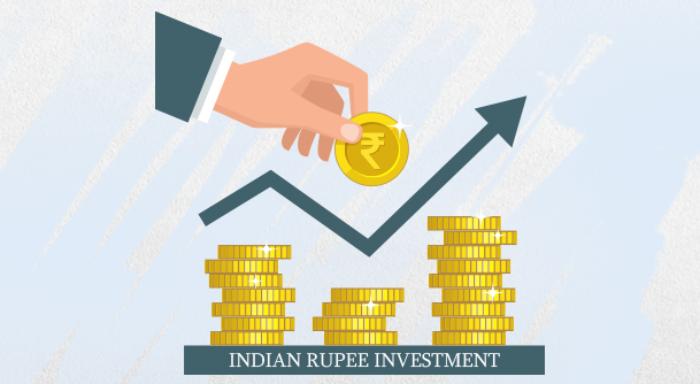Indirect Tax in India: Meaning, Types & Importance
Blog Title
3853 |
5/22/25 4:15 AM |
Whether you buy a movie ticket, a cup of coffee, or recharge your phone number, you always end up paying a small additional charge over the cover price value. This additional value is an “indirect tax” that every consumer pays to the government whenever they buy goods or services.
Indirect taxes are taxes levied on goods and services rather than on income. They are included in the price you pay and collected by businesses, which then pass them on to the government. In India, the Goods and Services Tax (GST) has replaced almost every older indirect tax with a single system.
This transition simplified tax compliance and affected areas like GST on term insurance premiums. So, what are the different types of taxes and what is their significance in our day-to-day life? Let's have a look at it!
Types of Indirect Taxes in India
1. Goods and Services Tax (GST)
The largest tax reform in India, the GST, was implemented to simplify the tax structure. It makes tax collection more consistent nationwide by replacing indirect taxes, including excise duty, service tax, and VAT.
The structure of GST is as follows:
CGST: The central government collects the central GST (CGST) on transactions that take place within a state.
SGST: A tax imposed on intrastate sales by the state government.
IGST: Imports and interstate transactions are subject to the Integrated GST (IGST).
Let's take an example to make it clear: Imagine sitting in Mumbai and placing an order for a laptop from a vendor in Delhi. IGST is applicable because this is an interstate purchase. However, CGST and SGST are applicable if you purchase from a Mumbai retailer.
2. Customs Duty
Have you ever wondered why the price of imported electronics is higher in India than in other countries? Customs duty is responsible for that. Taxes are charged on all items entering and leaving the nation to safeguard the local economy.
There are a few categories:
Basic Customs Duty: The baseline tax on imported products is called the Basic Customs Duty (BCD).
Anti-Dumping Duty: Imposed to prevent international companies from selling goods in India at prices significantly lower than their fair market value. This helps to protect domestic industries from unfair competition.
Imagine that a foreign business offers steel goods in India at a reduced cost. The government can enforce an anti-dumping duty to protect local companies from low prices.
3. Excise Duty
Excise duty is a tax imposed on products long before they are delivered to you while they are still being manufactured. After GST, it mostly applies to items like petrol, alcohol, and tobacco, but it was formerly levied on a wide range of goods.
This is why you may see that fuel costs vary from one state to another—each government imposes its own excise tax. Excise taxes impact the cost of essentials and help control products that harm the environment or health.
4. Stamp Duty
You might have paid stamp duty if you have purchased a home or signed a significant legal document. This one-time tax gives legal validity to your real estate transactions and agreements. Your documents wouldn't be considered official without it.
The valuation of the property and the state you are in will determine how much you pay, as the stamp duty rates differ throughout India! Stamp duty is required whether you're buying a house, getting a loan, or registering a company contract.
Think of it as the government's way of officially recording your transaction while collecting funds for public services.
5. Securities Transaction Tax (STT)
When you purchase or sell stocks, mutual funds, or other assets on the stock market, this small tax is automatically collected. Whether you earn a profit or not, STT is a part of every trade, unlike income tax, which is paid separately.
STT ensures that taxes on financial transactions support government funding without extra paperwork. It simplifies tax collection on investments and helps regulate the stock market.
Importance of Indirect Taxes
Even though they may not always be noticeable, indirect taxes are important to the economy. Here's why they are they are important:
Revenue for Public Services: Every time you pay excise, customs, or GST taxes, the money goes towards funding vital services like healthcare, education, and roads.
Easy and Automatic Collection: Indirect taxes are charged at the time of purchase, making compliance easier than income tax, which requires filing returns.
Fair Contribution from All: Regardless of income level, everyone pays it to the government as indirect taxes are incorporated into purchases.
Consumption Regulation: By raising taxes on items like luxury vehicles, alcohol, and tobacco, the government can reduce their usage while earning more money.
Disadvantages of Indirect Taxes
Although indirect taxes have several advantages, they also have certain disadvantages.
Unfair Impact: Indirect taxes are applied at the same rate for everyone, regardless of income. This means lower-income individuals end up paying a higher percentage of their earnings in taxes.
Increases Cost of Living: Indirect taxes can lead to inflation as they are imposed on the price of goods.
Becomes Complicated for Small Businesses: Even though GST simplified the tax structure, small businesses still have to deal with several files and tax classifications.
What Made GST a Better Option?
Before GST, dealing with many taxes, such as VAT, excise duty, and service tax, made things complicated and costly. Here's how GST simplified things:
One Simple Tax: You now pay one tax instead of paying for several.
No Double Taxation: Additional expenses are minimised by eliminating the need to pay taxes on taxes.
Easier for Businesses: GST reduces the administrative burden for business owners.
Transparent Pricing: The tax you pay on your bills is easily visible.
Conclusion
Indirect taxes are a significant component of India's financial system, affecting consumers and businesses. Businesses can now follow legal tax rules more easily while maintaining fair customer prices because of GST.
Indirect taxes like excise, stamp, and customs duties are important revenue sources. Understanding them helps you make smarter financial decisions when making an investment plan, buying property, or shopping.
So, the next time you see 'GST included' on your bill, you'll know exactly what it means and why it matters!










